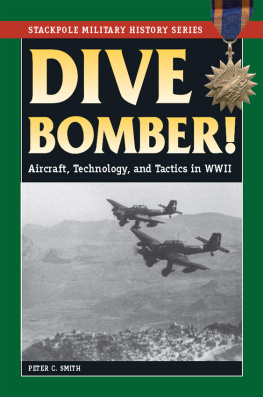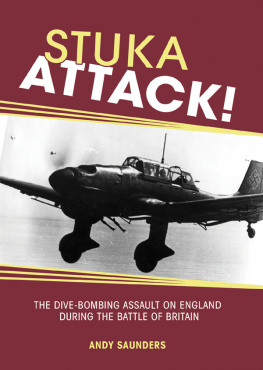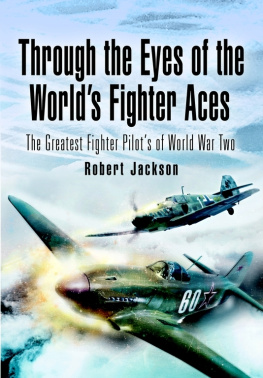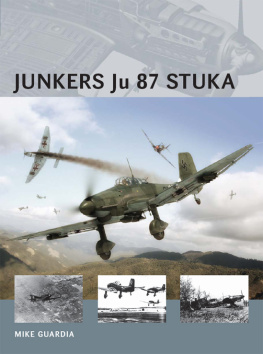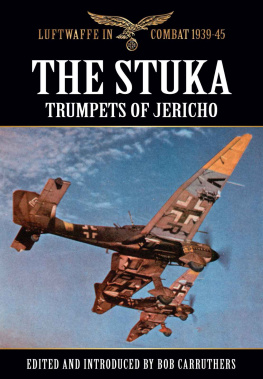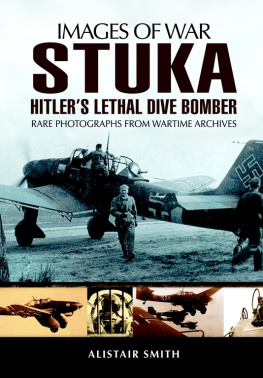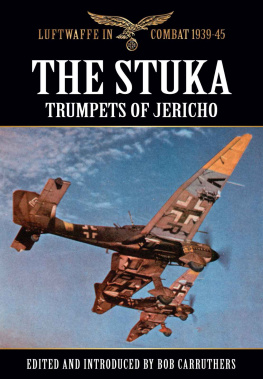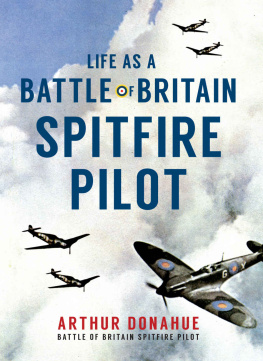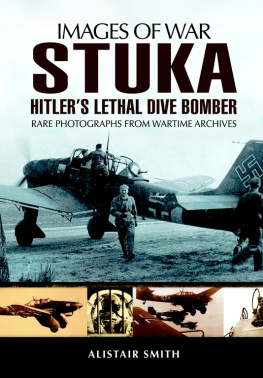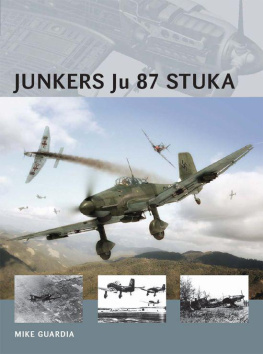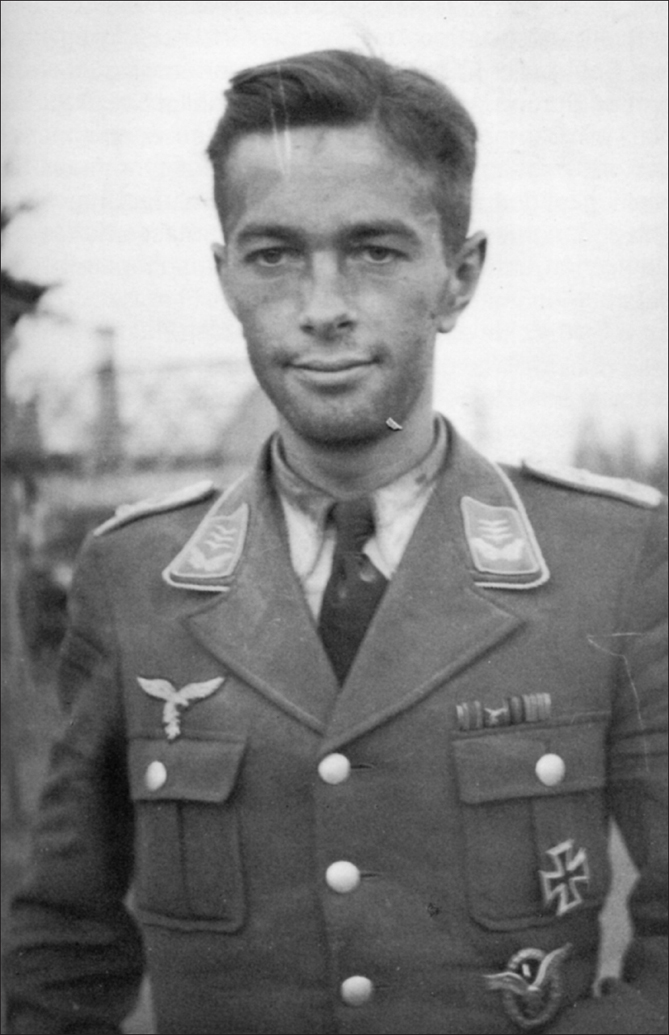
Hauptmann Helmut Mahlke at Dubovo-South airfield on 27 June 1941. After a forced landing, Mahlke had just spent three days behind Soviet lines and clearly shows signs of the strain involved.

Memoirs of a Stuka Pilot
This edition published in 2013 by Frontline Books,
an imprint of Pen & Sword Books Ltd,
47 Church Street, Barnsley, S. Yorkshire, S70 2AS
www.frontline-books.com
Copyright E.S. Mittler & Sohn GmbH, 1993
Translation Frontline Books, 2013
ISBN: 978-1-84832-664-4
EPUB ISBN: 978-1-47382-237-5
PRC ISBN: 978-1-47382-189-7
First published in German as Stuka. Angriff: Sturzflug
by E.S. Mittler & Sohn GmbH, in 1993
All rights reserved. No part of this publication may be reproduced,
stored in or introduced into a retrieval system, or transmitted, in any form,
or by any means (electronic, mechanical, photocopying, recording or otherwise)
without the prior written permission of the publisher. Any person who
does any unauthorized act in relation to this publication may be liable
to criminal prosecution and civil claims for damages.
CIP data records for this title are available from the British Library
For more information on our books, please visit
or write to us at the above address.
Printed and bound by CPI Group (UK) Ltd, Croydon, CR0 4YY
Typeset in 10.7/13.7 pt Arno Pro
Contents
Plates
All illustrations are from the authors collection. The colour plates are taken from the sketchbook of official war artist Hans Liska, also in the authors collection.
Between pages 50 and 51
Between pages 114 and 115
Between pages 178 and 179
Between pages 242 and 243
Foreword
I slept and dreamed
That life was joy.
I woke and saw
That life was duty.
I acted and lo
Duty was joy!
Rabindranath Tagore
How could you have let Adolf Hitler come to power? How could you have gone along with everything? These are the sort of questions that younger people have often asked me and others of my generation. I strongly suspect that most of them regard the answers we try to give them as unsatisfactory. Even we old ones now find the events of the 1930s hard to comprehend. They can only be understood if looked at in the light of the situation in Germany at the time: the bitter economic plight of the masses and the almost total lack of hope for the future, both of which arose from the countrys defeat in the First World War and the subsequent impositions of the detested Treaty of Versailles. But for the youth of today, who have thank God grown up in conditions of relative prosperity, and with much more freedom of thought and movement, such circumstances are hard to imagine.
We of the older generation have learned the lessons of our past, lessons which lead us to hope that such catastrophes can be avoided in the future. But the realities of today are giving rise to doubts that those lessons will continue to be heeded. This is one of the reasons why I decided it might be beneficial to put my memories of those times down on paper so that the future might be not just different, but better.
This book does not want to glorify war. But what it does want to do is to use this portrayal of one young mans experiences of war to bring about a deeper under standing of the past and, at the same time, record those human values the courage, comradeship and selflessness that should be safeguarded today to ensure the future.
More specifically, it tells the story of one Stuka Gruppe in time of war. I. Trger-Stuka 186, as we knew it, was activated at Kiel-Holtenau in 1939 as a naval dive-bomber Gruppe, originally intended for service aboard the aircraft carrier Graf Zeppelin. Upon the outbreak of war it was transferred to the Luftwaffe and attached to Stukageschwader 1, being officially incorporated into that unit as III./StG 1 after the fall of France. In the autumn of 1943 the Gruppe was again redesignated, this time to become III./SG 1. It subsequently converted from Ju 87s to single-seat Fw 190 ground-attack fighters, which it flew until the end of the war.
As regular soldiers of the then Weimar Republic we were not entitled to take part in general elections. So not one of us actually voted for Adolf Hitler. Our task was to perform our military duties to the best of our ability carrying out the orders of a regime voted into power by the German people. During the Second World War the Stukas did this by putting their lives on the line, and achieving successes beyond all expectations in the firm belief that they were serving a worthy cause: fighting for the survival of their homeland and freeing it from the oppressive shackles of the Versailles Treaty.
Our opponents may have feared the Stukas, but they respected their fighting qualities.
I dedicate my story to the Stukas in recognition of their many achievements and in honoured memory of my fallen comrades.
Helmut Mahlke
Heikendorf, autumn 1993
Foreword to the English Edition
In the nearly seven decades that have passed since the end of the Second World War the memoirs of numerous Luftwaffe fighter aces have appeared in the English language. But this is only the second major autobiography to be written by a German dive-bomber pilot since Hans Ulrich Rudels classic Stuka Pilot was first published in English (in Dublin) in the early 1950s.
This present work, however, is no mere imitation of that earlier book rather, it complements it. For whereas Rudels narrative deals almost exclusively with the fighting on the Eastern Front post-June 1941, Helmut Mahlke served as a Stuka commander during the opening months and years of the war when the crank-winged Junkers Ju 87 was arguably the most feared and fearsome weapon in the Luftwaffes armoury.
What follows is therefore a unique and gripping first-hand, Stuka pilots eye view of some of the most historic air battles of the Second World War: the campaigns in Poland and France, Dunkirk, the Battle of Britain, the bombing of Malta, North Africa, Crete and Operation Barbarossa, the invasion of the Soviet Union.
With the exception of one or two very brief passages of a socio-political nature, which have been omitted as being of little relevance to the English-speaking reader, this is a true representation of the original text. A few historical inaccuracies have been corrected, but the benefit of hindsight has been studiously avoided. The claims made and beliefs (however abhorrent) expressed in these pages are exactly as the author set them down, even if in some instances more modern research may cast doubt on their veracity.
One addition has been made to the German original. Helmut Mahlke ends his story with his admission into hospital after being shot down for a third time in Russia. But he retained a keen interest in his Gruppe, as he called it. For the benefit of an English-speaking readership it has therefore been decided to add a short afterword chronicling the Gruppes activities during the remainder of the war and describing what later befell some of the personalities his narrative brings so vividly to life.
It has been assumed that the reader has a working knowledge of Luftwaffe ranks, unit designations, organizational framework and the like. The German terms relating to such have only been explained or elaborated upon in the more unfamiliar cases. Lastly, in keeping with the period covered, place names have, wherever possible, been given in the form common at the time.
Next page



